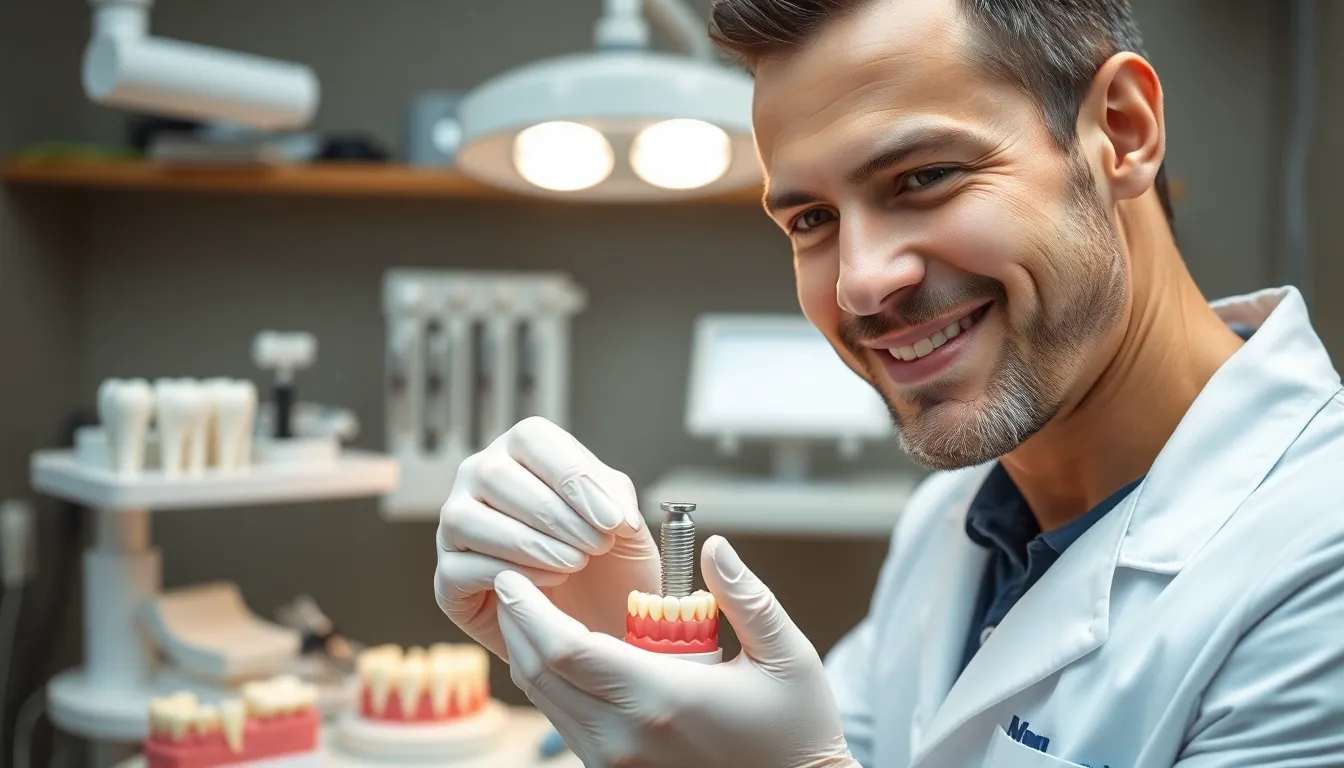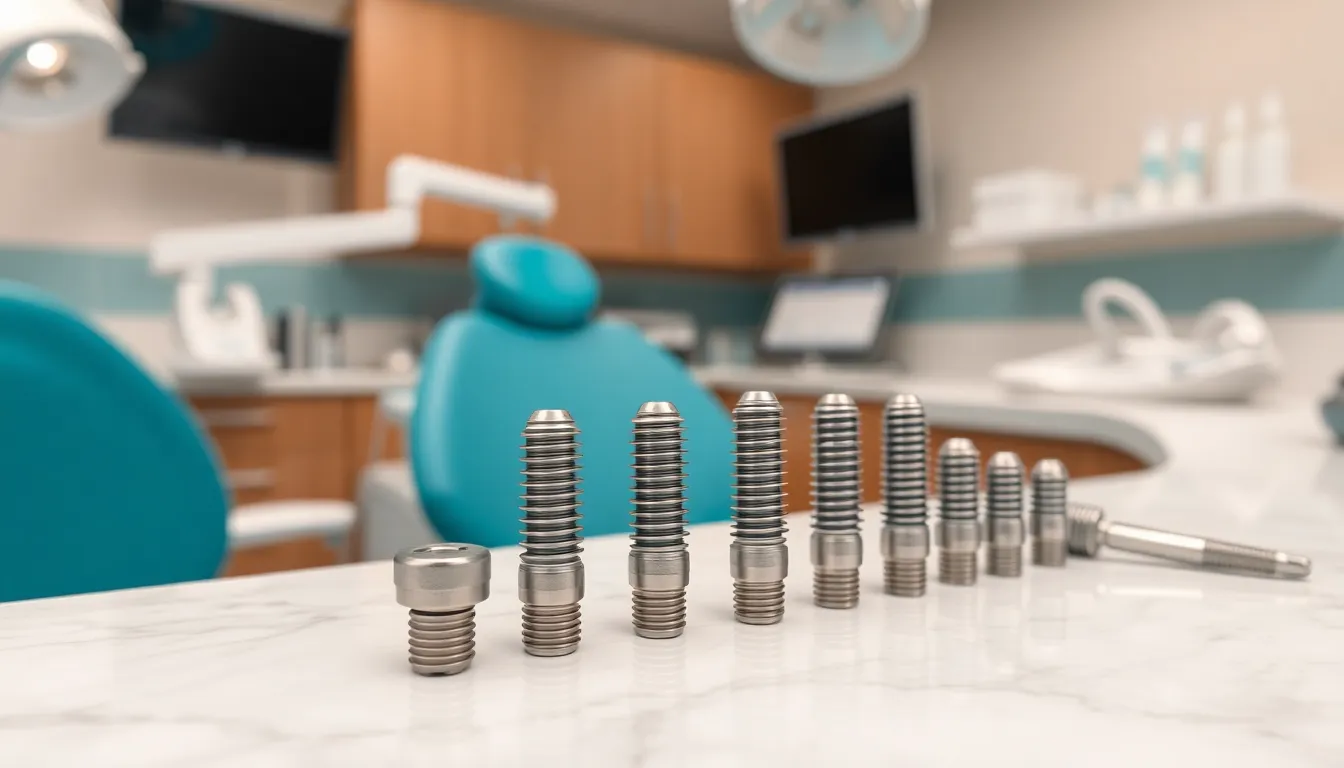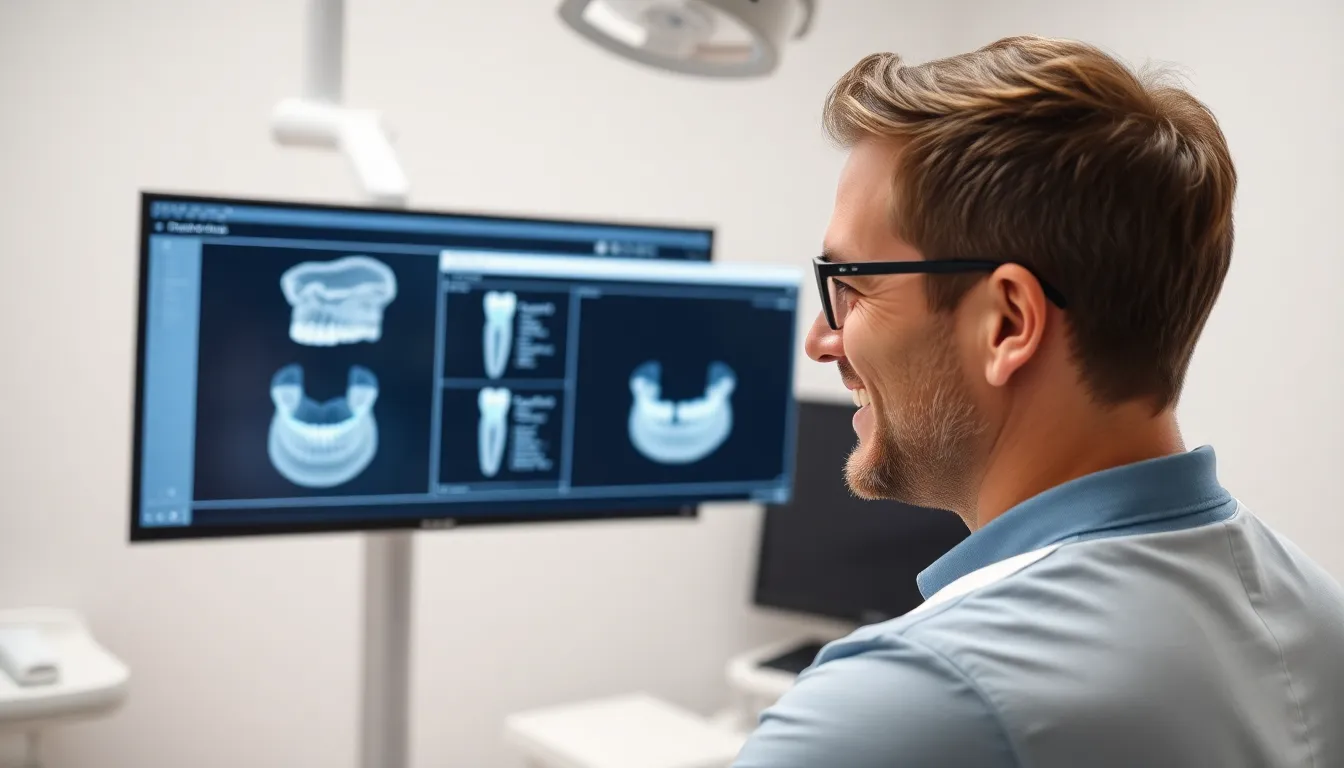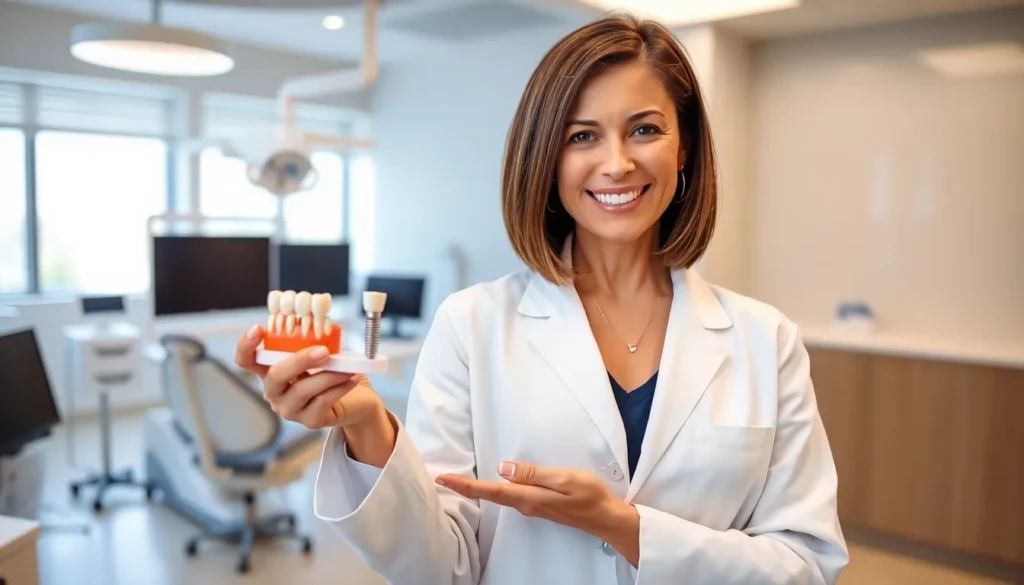Looking for the best dental implants brand but feeling overwhelmed by all the options? You’re not alone in this journey toward restoring your smile with confidence and durability.
When it comes to dental implants, quality matters tremendously. The right brand can mean the difference between a lifetime of comfort and potential complications down the road. Leading manufacturers like Straumann, Nobel Biocare, and Zimmer Biomet have established themselves as industry frontrunners, each offering unique advantages in technology, success rates, and longevity. As you consider your options, understanding what sets these top brands apart will help you make an well-informed choice that’ll benefit your oral health for years to come.
Understanding Dental Implants and Their Importance
Dental implants are titanium posts surgically embedded into the jawbone to replace missing tooth roots. These biocompatible fixtures create a sturdy foundation for mounting replacement teeth, offering a permanent solution to tooth loss. Unlike dentures or bridges, implants fuse with your natural bone through a process called osseointegration, creating a durable connection that can last decades with proper care.
What Are Dental Implants?
Dental implants consist of three essential components working together to restore both function and aesthetics. The implant post, typically made of titanium or titanium alloy, serves as an artificial tooth root anchored in the jawbone. A connecting piece called an abutment attaches to the implant, extending above the gumline to support the final restoration. The crown, bridge, or denture completes the implant system, providing the visible portion of your replacement tooth that’s custom-designed to match your natural teeth.
“One of my patients, Sarah, came to me after years of struggling with removable dentures. She couldn’t enjoy her favorite foods and felt self-conscious about her smile,” recalls Dr. Todd B. Harris. “Six months after receiving Straumann implants, she called me in tears of joy, saying she finally felt like herself again after enjoying corn on the cob at a family barbecue – something she hadn’t been able to do in over a decade.”
Benefits of Dental Implants
Dental implants deliver many advantages beyond merely filling gaps in your smile. These restorations preserve jawbone density by stimulating natural bone tissue, preventing the facial sagging that typically occurs after tooth loss. Implants restore nearly 100% of your natural chewing ability, allowing you to enjoy all your favorite foods without restrictions.
Your speech clarity improves significantly with implants, eliminating the slurring or whistling sounds sometimes associated with dentures. Implant-supported teeth require no special maintenance beyond regular brushing, flossing, and dental check-ups. The convenience factor ranks high for many patients – no adhesives, no removing appliances at night, and no food restrictions make implants feel much more like natural teeth than any alternative.
Types of Dental Implants
Endosteal implants dominate the market as the most common type, featuring small screw-shaped posts placed directly into the jawbone. These versatile implants support individual crowns, bridges, or even full-arch restorations. Subperiosteal implants offer an alternative for patients with insufficient jawbone density, sitting on top of the bone but still under the gum tissue.
All-on-4 implant systems represent a revolutionary approach for full-arch restoration, using just four strategically placed implants to support an entire arch of teeth. Mini dental implants, approximately half the diameter of traditional implants, provide options for patients with limited jaw space or those seeking less invasive procedures. Zygomatic implants, though less common, offer answers for severe upper jaw bone loss by anchoring into the cheekbone rather than the jawbone.
Top Dental Implant Brands in the Market

The market’s leading dental implant brands are distinguished by their innovative technology, biocompatibility, and clinical success rates. Each manufacturer offers unique advantages that cater to exact clinical needs and patient requirements.
Straumann Dental Implants
Straumann stands out as a premium Swiss brand known for exceptional quality and advanced material science. Their implants are crafted from Grade 4 pure titanium or Roxolid®, a titanium-zirconium alloy that delivers superior strength while maintaining optimal biocompatibility. The proprietary SLActive® hydrophilic surface technology accelerates healing time and enhances osseointegration by promoting faster bone cell attachment. Straumann’s comprehensive range includes both tissue and bone-level implants, making them suitable for complex cases including sinus lifts. Many of our patients appreciate the peace of mind that comes with Straumann’s extensive global support network and proven track record of clinical success.
Nobel Biocare Implants
Nobel Biocare, originating from Sweden, represents another top-tier option in the dental implant market. Their implants use Grade 4 titanium with the innovative TiUnite® surface—a porous, oxidized coating that enhances long-term bone integration. Nobel Biocare particularly excels in full-arch restorations, with their All-on-4® technique revolutionizing treatment for patients with important tooth loss. Their digital workflow integration streamlines the implant placement process, allowing for greater surgical flexibility and precision. Patients consistently report satisfaction with Nobel Biocare implants due to their reliability and natural-feeling results, especially in complex restoration cases.
Zimmer Biomet Dental Implants
Zimmer Biomet has established itself as a trusted American brand offering versatile implant answers with an emphasis on surgical precision. Their implants are manufactured from high-grade titanium and feature proprietary surface technologies designed to promote stable osseointegration. The comprehensive system provides clinicians with multiple options to address varied patient needs and anatomical challenges. Zimmer Biomet implants deliver solid clinical outcomes and exceptional durability, making them a preferred choice for many dental professionals seeking reliable, long-term answers for their patients. Their consistent performance across diverse clinical scenarios has earned them a loyal following among implantologists worldwide.
Osstem Implants
Osstem, a South Korean manufacturer, has rapidly gained international recognition for delivering an excellent balance of quality and affordability. Their expanding catalog features various implant types designed to accommodate different clinical requirements and budget considerations. Osstem’s growing focus on innovation and clinical research has strengthened their position, particularly in Asian markets, with increasing adoption globally. The brand offers competitive quality at a more accessible price point, making quality implant treatment available to a broader patient demographic. Dr. Harris notes that Osstem implants have proven particularly valuable for patients seeking quality treatment with cost considerations, without compromising clinical outcomes.
Key Factors to Consider When Choosing Dental Implant Brands

Selecting the right dental implant brand significantly impacts your treatment success and long-term satisfaction. The following factors help you navigate the complex industry of implant options and make an well-informed choice for your oral health restoration.
Material Quality and Biocompatibility
Material quality forms the foundation of successful dental implant treatment. Premium brands like Straumann use Grade 4 pure titanium or titanium-zirconium alloys that maximize biocompatibility, reducing rejection risks and promoting faster healing. Hiossen implants feature advanced surface technologies such as ETIII SA that enhance osseointegration and bone healing for improved long-term stability. The biocompatibility of these materials ensures your body accepts the implant as a natural part of your oral structure, creating a stable foundation for your replacement teeth.
Dr. Harris notes, “I’ve seen remarkable differences in healing times between patients who received high-quality implants with advanced surface technologies versus those with basic implants. The superior biocompatibility of premium materials often translates to fewer complications and more predictable outcomes.”
Success Rate and Clinical Evidence
Clinical validation through research and documented success rates provides essential guidance in brand selection. Straumann’s SLActive hydrophilic surface technology accelerates bone cell attachment and growth, backed by extensive clinical studies showing success rates above 98% over 10 years. Nobel Biocare, Dentsply Sirona, BioHorizons, and Zimmer Biomet have established track records of high success rates in diverse patient populations. These brands continue to invest in research and development, constantly refining their technologies based on clinical outcomes.
Sarah, a 62-year-old patient, shares her experience: “After researching different brands, I chose Straumann implants for my full arch restoration. Five years later, I’m still amazed at how stable they feel – just like natural teeth. The documented success rates gave me confidence in my decision, and the results have exceeded my expectations.”
Cost and Insurance Coverage
Cost considerations balance quality with affordability in implant treatment planning. Premium brands like Straumann typically command higher prices due to their advanced technologies and extensive research backing. Brands such as Hiossen offer quality implants at competitive prices without compromising innovation or performance, making them attractive options for cost-conscious patients. Insurance coverage varies dramatically by provider and region, with some plans covering a percentage of implant costs while others classify them as cosmetic procedures.
The total investment extends beyond the implant itself to include surgical fees, abutments, crowns, and potential bone grafting procedures. Discussing financing options with your dental provider helps create a treatment plan that addresses both clinical needs and budget constraints. Many practices offer payment plans or work with third-party financing companies to make quality implant treatment more accessible.
Technology and Innovation in Dental Implant Systems

Dental implant technology has evolved dramatically through advanced materials and innovative surface treatments that significantly enhance patient outcomes. Leading manufacturers invest heavily in research to develop systems that promote faster healing, improve stability, and increase long-term success rates.
Advanced Material Science
Titanium alloys form the foundation of modern implant systems, with Roxolid® by Straumann representing a breakthrough in material engineering. This titanium-zirconium alloy delivers 50% greater strength than standard titanium, making it ideal for complex cases with compromised bone structure. Patients with thin bone ridges previously requiring bone grafting can now often receive implants directly thanks to these stronger, narrower implants.
“I recommended Straumann’s Roxolid implants for Mrs. Jensen, who had limited bone volume and was hesitant about bone grafting procedures,” shares Dr. Todd B. Harris. “The enhanced strength allowed us to use a narrower diameter implant, avoiding additional surgeries while achieving excellent stability and integration.”
Surface Technology Innovations
Surface treatments represent one of the most important advancements in implantology, dramatically improving osseointegration:
- SLActive® (Straumann) – Creates a hydrophilic surface that accelerates protein absorption and bone cell growth, reducing healing time from 8-12 weeks to 3-4 weeks in many cases
- TiUnite® (Nobel Biocare) – Features a highly oxidized porous surface that enhances bone contact and stability
- ETIII SA (Hiossen) – Promotes accelerated bone healing through specialized surface modification techniques
- SLA (Sand-blasted, Large-grit, Acid-etched) – Pioneered by Straumann, this technology creates optimal surface roughness for cell attachment
Clinical studies demonstrate these enhanced surfaces can increase bone-to-implant contact by up to 30%, translating to higher success rates, particularly in challenging clinical scenarios.
Digital Integration and Guided Surgery
Digital planning tools have revolutionized implant placement precision. CAD/CAM technology enables:
- Creation of surgical guides for optimal implant positioning
- Digital smile design for improved esthetic outcomes
- Virtual treatment planning for complex cases
- Streamlined workflows between surgical and restorative phases
Dentsply Sirona’s digital network integrates seamlessly with their implant systems, allowing for precise planning and execution of complex cases. Similarly, Nobel Biocare’s X-Guide system provides real-time navigation during surgery, significantly reducing placement errors.
Biological Enhancement Technologies
Biological factors now play a crucial role in implant success. Growth factors and bioactive surface modifications include:
| Technology | Manufacturer | Benefit | Success Rate |
|---|---|---|---|
| SLActive® | Straumann | 50% faster osseointegration | 98.8% over 10 years |
| Laser-Lok® | BioHorizons | Connective tissue attachment | 96.7% over 5 years |
| OsseoSpeed® | Astra Tech | Enhanced early healing | 97.5% over 5 years |
| NanoTite™ | Zimmer Biomet | Increased surface area | 95.2% over 5 years |
These technologies create more favorable conditions for bone formation and soft tissue integration, resulting in improved long-term stability and esthetic outcomes.
The continuous advancement in dental implant technology offers patients more predictable results with shorter treatment times and fewer complications. As manufacturers compete to develop the next breakthrough, patients eventually benefit from these innovations that make implant therapy more accessible and successful.
Finding the Right Dental Professional for Your Implant Procedure

Selecting a qualified dental professional is equally important as choosing the right implant brand for your procedure. Dentists with specialized training in implantology deliver significantly better outcomes and reduced complications. Look for professionals who have completed advanced certification programs specifically focused on dental implant procedures.
Experience matters tremendously when it comes to implant placement. Clinicians who regularly perform implant surgeries maintain the necessary skills and stay current with evolving techniques. Ask potential providers how many implant procedures they’ve completed annually and their success rates with brands like Straumann or Nobel Biocare.
Professional affiliations serve as indicators of a dentist’s commitment to quality care. Dental professionals associated with reputable implant manufacturers often receive additional training and support directly from these companies. Practices affiliated with top brands such as Straumann, Hiossen, or Zimmer Biomet typically demonstrate higher standards of care.
“I had consultations with three different dentists before choosing Dr. Harris for my Straumann implants,” shares Maria T., a patient from Austin. “The difference was clear – he took time explaining why he preferred working with certain brands based on my exact bone condition, and showed me his portfolio of similar cases. Two years later, my implants feel completely natural.”
Advanced diagnostic tools play a crucial role in successful implant planning. Clinicians using 3D imaging technologies and digital planning software achieve more precise implant placement. These technologies allow for virtual placement before the actual procedure, significantly improving accuracy and reducing potential complications.
Patient reviews and testimonials provide valuable insights into the quality of care you’ll receive. Search for consistent positive feedback about a provider’s implant procedures, especially about long-term satisfaction. Testimonials specifically mentioning successful outcomes with brands like Dentsply Sirona or BioHorizons can be particularly informative.
Communication style should factor into your decision-making process. Your dental professional must clearly explain treatment options, expected outcomes, and maintenance requirements. They’ll recommend appropriate implant brands based on your exact clinical needs rather than pushing a one-size-fits-all solution.
Cost transparency indicates professionalism and trustworthiness. Reputable clinicians provide detailed treatment plans with comprehensive cost breakdowns, including the exact implant brand being used. They’ll explain why certain premium brands like Straumann or Nobel Biocare might cost more but offer superior long-term results.
Conclusion
Choosing the right dental implant brand is a decision that will impact your oral health for decades to come. While Straumann Nobel Biocare Zimmer Biomet and Osstem lead the market with their innovative technologies and proven success rates your final choice should align with your exact needs budget and anatomical considerations.
Remember that the implant brand is just one piece of the puzzle. Working with a qualified experienced dental professional who uses advanced diagnostic tools is equally important for successful outcomes.
By weighing factors like material quality success rates and cost alongside your dentist’s recommendation you’ll be well-positioned to make a choice that restores not just your smile but your confidence and quality of life for years to come.
Frequently Asked Questions
What are dental implants and how do they work?
Dental implants are titanium posts surgically embedded into the jawbone to replace missing tooth roots. They work through osseointegration, where the titanium fuses with your bone to create a sturdy foundation for replacement teeth. A complete implant consists of three parts: the implant post (artificial root), the abutment (connector), and the crown (visible replacement tooth).
Which dental implant brand has the highest success rate?
Straumann implants demonstrate the highest documented success rate at over 98% after ten years. Nobel Biocare follows closely with similar high success rates. However, success depends not only on the brand but also on the dentist’s expertise, patient’s bone quality, and proper aftercare. Premium brands generally offer better long-term outcomes due to superior materials and research-backed designs.
How long do dental implants typically last?
With proper care, dental implants can last a lifetime. Premium brands like Straumann and Nobel Biocare have documented cases of implants functioning effectively for over 20 years. The implant post itself rarely needs replacement if osseointegration is successful. However, the crown portion may need replacement every 10-15 years due to normal wear and tear.
Are more expensive dental implant brands worth the cost?
Higher-priced implant brands typically offer superior quality materials, better research backing, and more predictable outcomes. Brands like Straumann and Nobel Biocare cost more initially but may provide better value long-term through reduced complications and longer lifespans. Consider your budget alongside factors like implant longevity, warranty coverage, and the potential costs of complications with cheaper alternatives.
What advancements in dental implant technology should I know about?
Recent advancements include stronger titanium alloys like Roxolid® that work better for patients with compromised bone. Enhanced surface technologies such as SLActive® and TiUnite® improve osseointegration and reduce healing time. Digital planning with CAD/CAM technology and guided surgery systems now offer greater precision in implant placement. Biological enhancements also improve long-term stability and esthetic outcomes.
How do I choose the right dentist for my dental implant procedure?
Look for dentists with specialized training in implantology, such as those with credentials from recognized implant organizations. Verify their experience by asking about the number of implants they’ve placed and their success rates. Check that they use advanced diagnostic tools like 3D imaging. Review patient testimonials, evaluate their communication style, and ensure they provide transparent cost breakdowns.
Can dental implants be placed in patients with bone loss?
Yes, patients with bone loss can still receive dental implants through specialized techniques. Options include bone grafting to rebuild lost bone, All-on-4® systems that maximize existing bone, mini implants for less invasive placement, or zygomatic implants that anchor in the cheekbone. A qualified implantologist can determine the best approach based on your specific bone condition and overall health.
What maintenance do dental implants require?
Dental implants require similar maintenance to natural teeth: brushing twice daily, flossing daily, and regular dental checkups every six months. Unlike dentures, they don’t need adhesives or special cleaning solutions. While implants can’t develop cavities, the surrounding gum tissue needs proper care to prevent peri-implantitis (implant gum disease). With proper maintenance, implants can function indefinitely.







